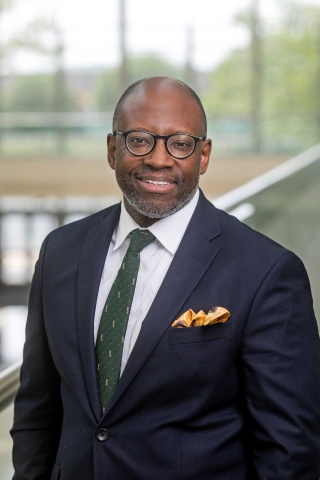Tens of thousands of black St. Louis residents gathered at the June 1 "Call to Oneness March" to protest against the rampant crime that continues to shackle generations to nihilism and self-destruction. An estimated 50,000 people marched. But we are left today with the "now what?" question. Calls for black men to embrace "individual responsibility" without defining what "responsible" means makes matters worse. What is needed is a more radical call to go beyond the individual self and demonstrate some concern for others.
As of last Thursday, St. Louis had 61 homicides so far this year, 15 more than the same period last year. Of that swelling number, at least 43 were black males, according to the St. Louis American, the city's black newspaper. Overall, there were 138 homicides last year, making St. Louis one of the most dangerous cities in America.
The Gateway City's problems are especially severe, but they're not unique. Across America, there is a longing for a magic solution, the next black messiah who will come and unite "the community." He's not coming. There is no single variable that will solve this crisis. Confronting issues of morality, education, family, marriage, job creation, and music complicate any solution matrix. At the heart of any solution, however, must be a move toward responsible service. We can march up and down every black neighborhood in America but until this radical call is sounded and heard, don't expect any changes.
Previous calls for "individual responsibility" without virtue bred the kind of selfishness summarized in the phrase, "I'm gon' get mine!" There is a civil war waging in many black communities and simply telling black males to focus on being "individually responsible" will not stop the violence or the fatherlessness.
In fact, it is a radical individualism that allows one, with a clear conscience, to murder one's neighbor or impregnate women to whom there is no intention of remaining faithfully committed. The black community does not simply want individually responsible black men: We want black men who see that they exist for the service of others.
Casting a different vision for men, as articulated by former NFL player Joe Ehrmann in Season of Life, must start with the following: (1) black men declaring war on the false masculinity based on sexual conquests, material possessions, and physical dominance over others; (2) black men fostering life-giving personal relationships that affirm offering their strength to their family members, friends, neighbors, and co-workers; (3) black men being initiated into a transcendent cause beyond, "gettin' mine" or "gettin' paid"; (4) black men accepting responsibility for the fact that all of their actions, private and public, impact society at-large; (5) black men leading courageously and sacrificially by offering their strength to make the world better; (6) black men enlisting in the war to fight against injustice; and (7) black men developing empathy for the plight of others.
Until black men embrace a new vision – being a real man means that you exist to serve others – the self-sabotage will continue. The black religious community historically has played the leading role in the formation of those virtues that foster a vocation of responsible service, but today the church is impotent, its credibility among with the hip hop generation washed away in the currents of contemporary culture.
"Individual responsibility" means nothing if is not directed at cultivating the virtue necessary to make a positive contribution to the lives of others. Prior to the civil rights movement, looking out for each other was endemic, partly a function of necessity. Those values were lost in a single generation. What must be next for St. Louis, and other cities where blacks are destroying each other, is a multi-faceted approach that casts a new vision for making a contribution rather than retribution.
There is no more fulfilling human vocation than to know that one is making a positive difference in the world, no matter how big or small. What matters, in the end, is not that we are responsible for ourselves but that we are responsible for each other.












